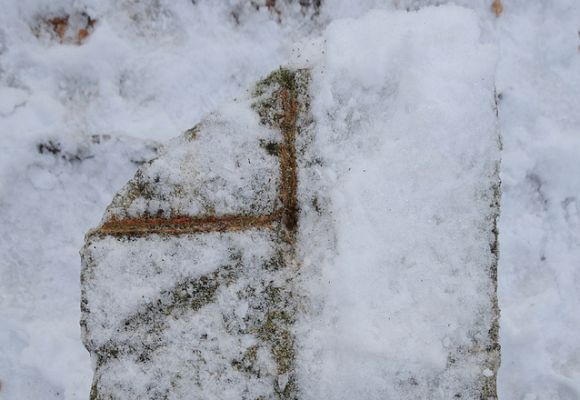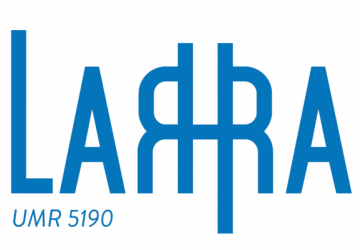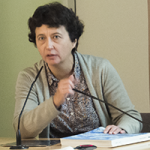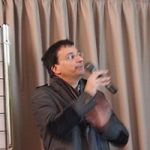Projet de recherche
InnoMont : Négocier l’innovation, lectures montagnardes
France
Du 02/04/2012 au 01/07/2014

WP2 InnoMont offers a perspective with a human and social focus over the long term. It considers innovation as a tool to tackle change in mountain region societies.
Starting from suggestions made by the researchers, three work axes were defined and organized into multidisciplinary poles:
- “Employment, job insecurity and property in the mountain territories”;
- “Limits and liminarity in the mountain territories”;
- “From individual innovation to territorial intelligence”.
From different starting points, these poles provide knowledge about the processes of adaptation and the forms of resilience in the economic and social systems. The chosen objects – tourism, multiactivity and isolation – are found at the heart of the mountain region’s specificity and thus facilitate an examination of its particular capacities or drawbacks.
From individual innovation to territorial intelligence
The “From individual innovation to territorial intelligence” pole links the management science specialists with STAPS (Science and Technique of Physical and Sports Activities) and makes a comparative analysis of network and territory effects in innovation. It focuses on innovation in tourism and in particular on services by comparing mid-mountain resorts with so-called integrated top- mountain resorts (such as Avoriaz), whose integration into the territory is distinctly different. The research results in an elaboration of the network/territory typology that was valorized with several events and in international publications, as well as among professionals. The capital that this research methodology (evaluation grid) provided was subsequently developed through a study of small businesses in mountain territories, which examines the works relative to the economic actors who make up one of the targets for LabEx’s evolution.
Limits and liminarity in the mountain territories
The “Limits and liminarity in the mountain territories” pole compares a theoretical approach to the categorisation of objects (limits of the mountain territories) and its effects on activities (the perimeter of public actions) with a thematic approach to the border. This perspective questions the norms and the characters that determine the construction of the mountain region’s specificity, from a cognitive (scholarly or expert definitions), anthropological (identities, imagination) or policy (territorial divisions) point of view. Furthermore, there is an examination of the effects on action and innovation in the mobilisation of memory (the creation of heritage) and the exacerbation of particularities (market specification or folklorisation).
A seminar entitled “Malleable Mountain: Level it or Raise it up? Towards a Multidisciplinary Approach to the Slope” provided an initial formalisation.
In 2014, work was oriented, in a more direct manner, towards the forms of territorial development that resulted from conflict at the border. In collaboration with researchers from the University of Torino and local stakeholders, an analysis of the Upper Susa Valley facilitated an examination of complaints regarding the border crossing (the high- speed train tunnel on the Lyon–Torino railway line) and its effects on economic dynamics.
Employment, job insecurity and property in the mountain territories
The “Employment, job insecurity, property in the mountain territories” pole, in the framework of a long-term approach, seeks to work on past and present mutations in the production system of the mountain territories (nature of activities, forms of employment), linked with the territory’s forms of appropriation (land question, use of the territory), by considering the social impact of these mutations (population’s security/insecurity) in terms of access to employment and redistribution systems. The works lead to an examination of the relevance of a reading in terms of residential economy versus production economy in the long run, a rereading of the history of multiactivity and a questioning of their past and present relationship with insecurity, in order to better define the specificity of their relationship to the land (via the question of secondary residences) and the specificity of the take-up of social rights in a mountain region, in association with the Observatory on Non-Take Up of Social Rights and Public Services (ODENORE), which provides methods and weighs in on the analysis of insecurity in the urban sphere. The exploratory terrains focused on tourist sites (Serre-Chevalier) and sites that in the past endured a crisis time for industrialisation (Romanche valley). They made it possible to connect social stakeholders with each other (Council of the department of Isère, the solidarity service of the territorial direction of the Oisans area, services of the General Directorate of Public Finance, the employment agency and the Mission Locale), as well as with associations of owners of secondary residences. These fields bring into sharp relief the forms of insecurity, specific or not, facing the mountain region economies and answer the fundamental question as yardstick of the economic and social problems of the regions. This theme in 2015 is evolving towards an economic approach (an analysis of the mutations of work systems at resorts) on the one hand, and a socio- demographic approach on the other hand (aging, and services provided to the elderly), in a comparison with Italy.
Five doctoral students are connected to the work of the three centers: Two are financed by LabEx, one is co-financed by the University of Savoy and socio-economic partners, and two receive funding through the regional Academic Research Community (ARC).
The partnership-based research and the research-society interface of this WP are characterized by an original and noteworthy operation linking the LabEx ITEM and the INA (National Audiovisual Institute – Centre-East Delegation) within the framework of the convention on multimedia co-production to develop a thematic site of digital resources online entitled Magic Mountains. This fresco, which benefits from the skills assembled at LabEx, serves as a mechanism to valorize the result of the works of the multidisciplinary teams by giving these competences back to the general public. It implements public audiovisual archives, (13 associated) researchers’ critical analyses and a chronological ordering that allows for an analysis of the evolution of tourism and of the media discourse on tourism in the mountains. For INA, this is the first fresco to be co-produced in close partnership with a research body. The tool seeks to provide an opening for a wide audience: the website is accessible free of charge, and it represents a mean of interactive knowledge and a material that teachers can use, whether for contextual analysis or for a critical analysis of the media. LabEx co-finances this dissemination through interactive terminals in cooperation with the MSH-Alpes and the university’s library of law and humanities (ongoing). This operation opens two tracks: the valorization of the fresco itself as an interactive tool, with an expansion towards other themes than just alpine tourism, and the analysis of media discourses and images in order to better grasp historical. Furthermore, following the example of the chrono-systemic timeline, the fresco was incorporated into the CNRS and Alliance Athena 'Innovatives SHS' trade fair.
The “Limits and liminarity” pole is beneficial for transborder cooperation. It led to field works connecting researchers from the University of Torino with officials from the Susa valley. Starting in 2015, it covers a cross-borders space by drawing in the adjacent Maurienne province and develops the problem of the relationship between the upper valley and the metropolitan area of Piedmont within the framework of a comparison between Torino and other metropolises. It develops a wealth of skills on the question of the border, in particular as part of expertise on the macro-alpine strategy or on collaborations with Geneva.
Institutions partenaires

Laboratoire Sport et ENvironnement Social (EA 3742)
Porteur du projet

LAboratoire de Recherche Historique Rhône-Alpes (UMR CNRS 5190)
Porteur du projet

 Facebook
Facebook Forward
Forward Google+
Google+ LinkedIn
LinkedIn Twitter
Twitter












